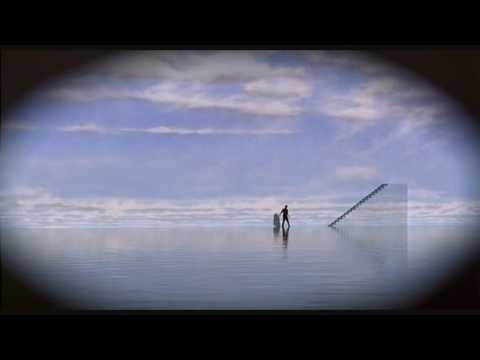November 3, 2016
What If There Had Been No Door In the Wall?
The ending of the Truman Show has always surprised, thrilled, and satisfied me. Even after all these years, and all that critical analysis. But I often ask the question, What if there had been no door in the wall? For me that seems the most obvious question to ask of the movie, quite apart from the barrage of critiques that explore its nascent shout-out to the social media generation.
Yep, above all that, the big question for me is always, What would Truman have done if there had been no door?
What if, after summoning all of his courage, fuelled as it was by suspicions that there was more to life than what he could see in his home town of Seahaven, Truman Burbank had sailed across that lake, crashed into that painted wall, only to search vainly for a door that was not actually there?

What if, after all his dreams that someone bigger, something better, something beyond was waiting for him, something that would satisfy the deep yearnings of his heart, there was nothing. Or at least what if he came to the realisation that this was all there was.
No door. No hope beyond. No soothing scratch for that constant itch.
What would Truman have done?
He would have gotten back into that boat, crestfallen, slightly bitter, feeling ever so slightly goofy that he had even dared to dream there was something more, and he would have sailed home. He would have divorced his wife, found a better lover, taken a better job, found more exhilarating friends, and upgraded his car. That’s what Truman Burbank would have done.
In other words he would have done what Hollywood would have done, minus the facelift and hair transplant. He would have done what we would have done. What we do do in the light of the fact there is no door in the wall.
The fear that there is no door in the wall drives our anxieties, but the hope that there is drives our imaginations. Which is why Hollywood cannot bring itself to paint the brutal reality of its own beliefs.
I’m giving an overview tonight of Charles Taylor’s 900 page tome, A Secular Age. And central to my talk is Taylor’s observation that our modern imaginary, what we collectively conceive from what is constructed, centres upon the idea of an immanent frame.
By that term, Taylor simply means that even the possibility of the transcendent is discounted in the secular. He quotes Peggy Lee’s mournful, Is That All There Is?, in which the protagonist senses there should be more to life, but is convinced by experience that there is not.
Yet the immanent frame cannot suffocate the question, or strangle the desire for a door in the wall.
So in this modern world in which the unspoken statement is “this is all there is” announces itself as the only public reality, why did Weir not do with The Truman Show what so many lesser known indie directors (Jim Jarmusch springs to mind) do? Why did he not just end with the ironic, self-deprecating question mark? That would have been a more honest film, would it not?
Simple reason really. The audience wouldn’t buy it. We would have not gone to see it. It would have made no money. If The Truman Show had remotely reflected what we imbibe in this hyper-technological era – that this is all there is, we would have felt cheated. Hey, we may even have demanded our money back so that we could go and spend it on something to numb the pain.
We long for resolution that is beyond sucking up our lot in life and upgrading the white goods, even if, collectively, we settle for such consolations.
The tension of our secular age is summarised by novelist Julian Barnes’ oft-quoted lament “I don’t believe in God, but I miss him.” Few of us are as honest as Barnes, but it’s the sentiment that makes the secular age, ironically, the most religiously hungry of eras.
An era torn between a commitment to the immanent frame and a desire for a door in the wall that leads to something bigger, better, beyond.
The Truman Show resonated with us precisely because there was a door in the wall, even in the face of the secular stronghold of our modern imaginary.
And that is what makes Taylor’s book such a prescient text.
Written by
There is no guarantee that Jesus will return in our desired timeframe. Yet we have no reason to be anxious, because even if the timeframe is not guaranteed, the outcome is! We don’t have to waste energy being anxious; we can put it to better use.
Stephen McAlpine – futureproof
Stay in the know
Receive content updates, new blog articles and upcoming events all to your inbox.


